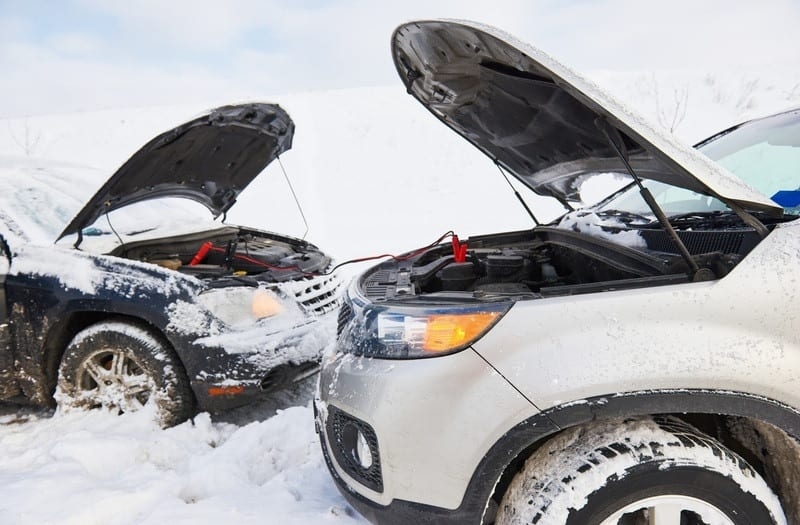
Why Do Car Batteries Die in Winter?
It’s no secret that Canada has some of the coldest winter weather in the entire world. For the most part, Canadians are more than able to cope with these weather conditions, but the same isn’t always true for the batteries in our cars. Cold winter weather, in particular, can have a major impact on the function and overall performance of your car battery. Being aware of why this occurs can help you identify signs that your battery is on its last legs. In addition, understanding the causes of battery failure in the winter will help you find the ideal battery to use in cold weather, so you don’t encounter this problem in the future.
Understanding Basic Car Battery Function
Before you can gain a full understanding of why car batteries are more likely to fail in cold weather than any other type of weather, it is a good idea to gain a basic understanding of how your car batter operates. A typical car battery contains lead plates that are mixed with liquid electrolytes that creates an electric charge. These electrolytes react to both hot and cold temperatures. In higher temperatures the reaction is sped up, meaning the battery is able to produce a higher charge. While this means the battery is able to start more efficiently, the high reaction rate causes more rapid deterioration over time. Meanwhile, a colder temperature will lead to a lower rate of reaction, which is why cars are a little slower to start when temperatures fall below freezing. In some cases, the cold will slow the reaction down so much that the battery will be unable to produce any type of charge, and your car won’t be able to start.
Hot and Cold Effects
The cold temperatures definitely play a major role in causing a batteries to die in winter, but simply being exposed to cold temperatures isn’t the only reason why batteries die. Over the lifespan of a car battery it gets exposed to extreme hot and cold temperatures. While the cold is eventually what causes the battery to die, hot temperatures play a major role in that process. When a battery runs in the heat, the internal corrosion occurs at an accelerated rate. The reason why car batteries die in winter rather than summer is because the battery doesn’t require as much power to run the engine when its warm out, so it can run at a lower charge. When the temperature drops, the batter requires a higher charge to function efficiently, which can be difficult if the internal corrosion during the summer months prevents the battery from being fully charged. The lower charged battery is therefore more likely to freeze and die.
Preventative Battery Maintenance for Winter
To avoid issues with your battery during the winter, there are a few precautions you can take. These simple tips will go a long way towards keeping your battery working properly for a longer period of time, even in the dead of winter. You can first take a look at how old your battery is. The age of the battery can be indicated by the date it was manufactured, which is listed on the side of the battery. If you notice your battery is more than ten years old, it is probably best to replace it all together. You should also check the battery for any signs of corrosion. This can usually be found around the terminal connections. If you notice any discoloration round the connections this can be a sing of internal corrosion.
One other way to make sure you get the most out for your battery’s life span is to avoid using other electrical systems in your car during the winter before you start the engine. Once your engine is on, it will charge the battery, making it easy for you to use things like the radio or heating system. Before the engine is on however, these systems draw energy from the battery alternator, which should otherwise go towards starting the engine and keeping the battery charged.
If you would like to learn more about which batteries work best during winter months in Vancouver, be sure to visit the experts at Polar Battery today for more advice and other helpful tips.
